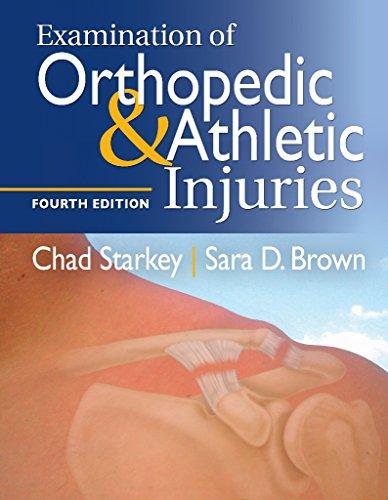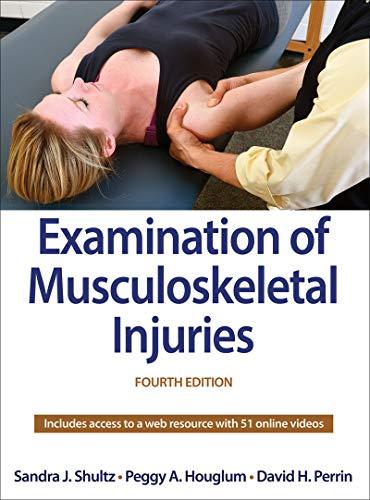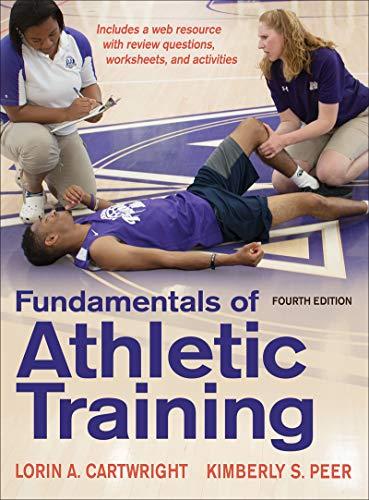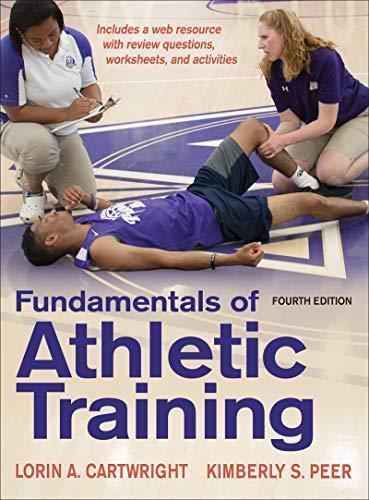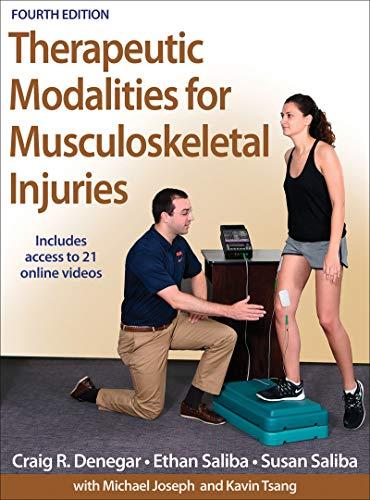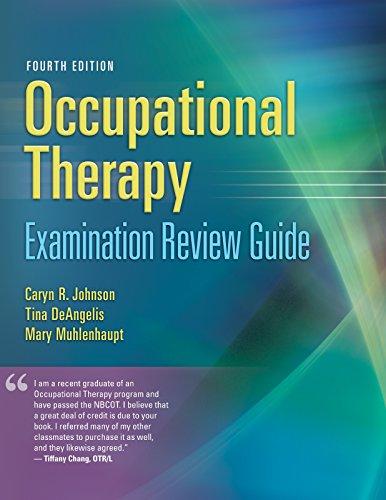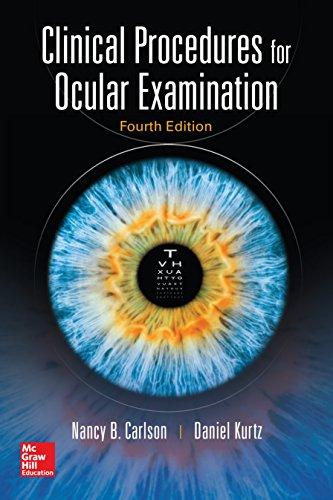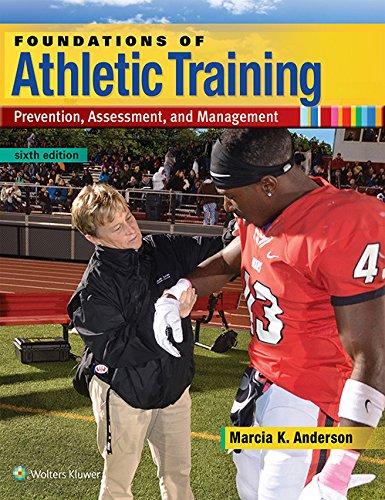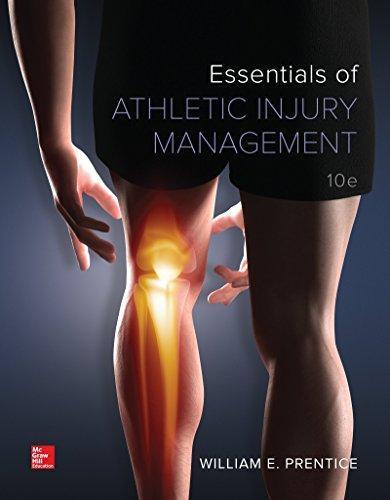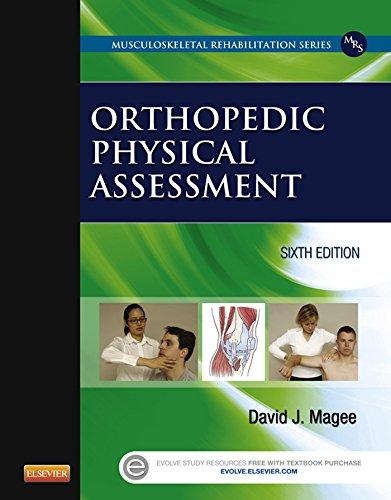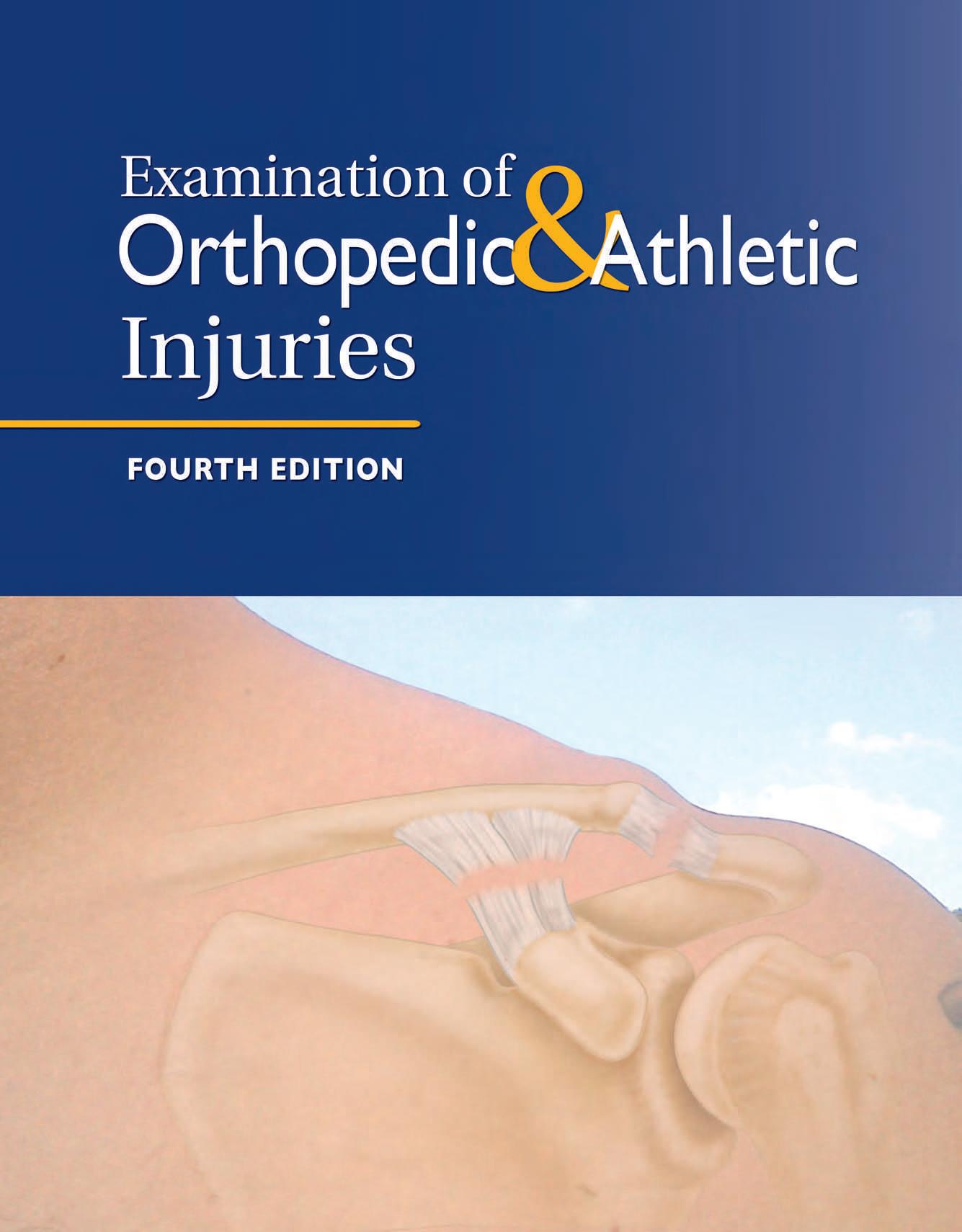Foundations of Examination
Outcome-measure instruments are used to determine the patient’s current functional status, the impact of a condition on the patient’s life, and the extent to which an intervention is helping the patient. Initially, outcome measures were primarily employed for research, but their use has expanded so that functional outcome measures and disability questionnaires are completed at regular intervals to document the patient’s progress over time. When collectively examined, outcome measures form the basis of data used to determine if an intervention is effective.
Quantifying the extent of a patient’s range of motion (ROM), a clinician-rated outcome measure, may provide valuable data regarding body structure and function, but it tells us little about how the patient is actually functioning in everyday life. Other clinician-rated measures, such as a single-leg hop for distance, assess functional performance to quantify specific functional activities. Both generic and condition-specific patient-rated outcome measures capture the impact of a condition across the disability spectrum.1
During a clinical examination, we typically question patients about the impact of the condition on their life (e.g., activity limitations). Patient-rated outcome measures provide a standardized, objective means to quantify the patient’s impairments and how to best tailor an intervention to a particular patient. For example, the patient who identifies that her knee pain is limiting her ability to run more than 20 miles would likely have a different series of interventions than the patient whose knee pain prevents her from walking more than 100 yards. The integration of patientbased outcome measures into the examination process is critical to patient-centered care.
Interpreting the results of patient-based outcome measures requires a basic understanding of the instrument, its target population, and what change in the score is meaningful. Many outcome measures have been validated on nonathletic populations and therefore are not adequately responsive to assess change or disability in an athlete. Consider, for example, a basketball player who is fully participating in practice yet still reports lingering effects from an ankle sprain. This person may score the highest possible total on a patient-rated outcome measure yet still may not be at the preinjury performance level. Some outcome measures incorporate a sports subscale to avoid this ceiling
effect, the point where the instrument’s score is no longer meaningful.
Using the same outcome measure on the same patient for the same condition provides information regarding the patient’s progress. Two values, the minimal detectable change (MDC) and minimally clinically important difference (MCID), are important to interpreting results. The MDC describes the change that exceeds the boundaries of measurement error. For example, if a goniometric measurement has an error of plus or minus 5 degrees, then a daily change of 4 degrees in a patient’s ROM does not constitute a detectable change. A detectable change, however, may not be important to the patient. The MCID value represents the smallest amount of change that is perceived as beneficial to the patient.1 Refer to Chapter 3 for more discussion on these values.
In this text, many clinician-based outcome measures that assess body structure and function are described in the relevant chapter. The section openers provide examples of generic and condition-specific patient-rated outcome measures. Also included are clinician-based outcome measures commonly used to assess activity limitations. A brief explanation of a sampling of available outcome measures and their MDCs and MCIDs is included.
Generic Outcome Measures
Generic outcome measures are not specific to a condition or region of the body and have the advantage of broad utility across all patients. Some generic outcome measures, such as pain scales, are described in Chapter 1. Generic outcome measures are often used in conjunction with condition- or region-specific outcome measures.
36-Item Short Form Health Survey (SF-36)
The patient answers 36 questions. This questionnaire yields a profile of functional health and well-being in eight subscales: physical functioning, role limitations caused by physical health problems, bodily pain, general health perceptions, vitality, social functioning, role limitations caused by emotional problems, and mental health.2 Scores range from 0 to 100, with lower scores indicative of lower healthrelated quality of life. Shorter versions, including the Short Form 8 and Short Form 12, are also available.
Another random document with no related content on Scribd:
unpleasant? Who better than he should know how to deal with such emergencies? His past must be strewn with precedents. As her memory travelled back over their life together she recalled their having met, one day at Hadrian’s Villa, a little woman, a Mrs. Guy So-and-so—she had even forgotten the name! She and Chris had been wandering, close-linked—for the tourist season was over, and besides, they cared so little who saw them—through the rich garlanded ruins, all perfume and enchantment; and there, in their path, had stood a solitary figure, the figure of a young woman, pretty, well-dressed, with a hungry melancholy face. A little way behind her, a heavy elderly gentleman in blue goggles and an overcoat was having archæological explanations shouted into his deaf ear and curved hand by a guide with a rasping German accent —and Chris, exclaiming: “By Jove, there are the So-and-sos!” had advanced with outstretched hand, introduced the two women, and poured out upon the melancholy newcomer a flood of laughing allusive talk, half chaff, half sentiment, and all as easily, as unconcernedly as if her great eyes had not, all the while, been pleading, pleading with him to remember.
And then, afterward, when Kate had said to him: “But wasn’t that the woman you told me about once, who was so desperately unhappy, and wanted to run away with you?” he had merely answered: “Oh, not particularly with me, as far as I remember—” and she had hugged his arm closer, and thought how funny he was, and luxuriously pitied the other woman.
Yes; that was the real Chris; always on the spot, easy-going and gay. The stammering evasive apparition in the Park had no resemblance to that Chris; Kate knew instinctively that it was not the fact of meeting her that had so disturbed him, but the fact that, for some reason, the meeting might interfere with his plans. But what plans? Why, his plans with Lilla—which would necessarily bring him in contact with the clan, since they so resolutely backed Lilla up, and thus expose him to—to what? To Kate’s betraying him? For a moment she half-laughed at the idea.
For what could she do to injure him, after all? And, whatever his plans were, how could he ever imagine her interfering with them, when to do so would be to betray her own secret? She lay there in the dreary dawn and tried to work her way through the labyrinth. And then, all at once, it came to her: what if he wanted to marry Lilla? And what more probable than that he did? It was evident that living with his people and administering Mr. Maclew’s philanthropies was not a life that he would have called “fit for a dog”. He liked money, she knew, for all his careless way; he wanted to have it, but he hated to earn it. And if he married Lilla there would be plenty of money. The Drovers would see to that—Kate could imagine nothing more likely to unloose their purse-strings than the possibility of “settling” Lilla, and getting rid of the perpetual menace that her roving fancies hung over her mother’s neatly-waved head. Chris, of course, was far too clever not to have seen that, and worked out the consequences in his own mind. If Lilla had been plain and dowdy he wouldn’t even have considered it—Kate did him that justice. If he liked money he liked it in a large lordly way, and only as one among several things which it was convenient but not essential to have. He would never do a base thing for money; but, after all, there was nothing base in marrying Lilla if he liked her looks and was amused by her talk, as he probably was. There was one side of Chris, the side Kate Clephane had least explored, and was least capable of understanding, which might very well find its complement in Lilla....
Kate’s aching eyes continued to strain into the future. If that were really his plan, of course he would be afraid of her! For he knew her too, knew her ever so much better than she did him, and would be sure to guess that, much as she would want to cover up their past, she would not hesitate a moment between revealing it and doing what she called her duty. Her duty—how he used to laugh at the phrase! He told her she had run away from her real duties only for the pleasure of inventing new ones, and that to her they were none the less duties because she imagined them to be defiances. It was one of the paradoxes that most amused him: the picture of her
flying from her conscience and always meeting it again in her path, barely disguised by the audacities she had dressed it up in.
Yes; evidently he had asked himself, on the instant, what she would do about Lilla; and the mere fact made her feel, with a fierce desperation, that she must do something. Not that she cared a straw about Lilla, or felt the least “call” to save her—but to have Chris in the family, in the group, to have to smile at him across the Clephane dinner-table, the Drover dinner-table, all the family dinner-tables, to have to keep up, for all the rest of her life, the double pretence of never having liked him too much, and of now liking him enough to gratify the pride and allay the suspicions of the family—no, she could not imagine herself doing it! She was right to be afraid of him; he was right to be afraid of her.
The return to daylight made her nocturnal logic seem absurd; but several days passed before her agitation subsided. It was only when she found life continuing undisturbed about her, Anne painting for long rapturous hours, Lilla following her same bored round of pleasure, the others placidly engaged in their usual pursuits, and no one mentioning Chris’s name, or apparently aware of his existence, that the shadow of her midnight imaginings was lifted.
Once or twice, as the sense of security returned, she thought of letting Chris’s name fall, ever so casually, in Fred Landers’s hearing. She never got as far as that; but one day she contrived, in speaking of some famous collection of books just coming into the market, to mention Horace Maclew.
Landers’s eye kindled. “Ah, what books! His Italian antiphonals are probably the best in the world.”
“You know him, then? How—is it long since you last saw his library?” she stammered.
He considered. “Oh, years; not since before the war.”
Her heart rose on the mounting hope. “Oh, not since then?... I suppose he must have a very good librarian?”
“Used to have; the poor chap was killed in the war, I believe. That reminds me that I heard the other day he was looking for some one.”
“Looking for a librarian?” She heard her voice shake. “Not for a private secretary?”
She thought he looked surprised. “I don’t think so; but I really don’t remember. I know he always has a lot of scribes about him; naturally, with so many irons in the fire. Did you happen to hear of any one who was looking for that sort of job? It might be a kindness to let Maclew know.”
She drew her brows together, affecting to consider. “Where did I hear of some one? I can’t remember either. One is always hearing nowadays of people looking for something to do.”
“Yes; but of few who can do anything. And Maclew’s the last man to put up with incompetence. You must come and see him with me. He’s not an easy customer, but he and I are old members of the Grolier Club and he lets me bring a friend to see his library occasionally. I’ve always promised to take Anne, some day when she’s going on to Washington.”
Kate’s heart gave a sharp downward plunge. That “Take Anne” reverberated in her like a knell. What a fool she had been to bring the subject up! If she had not mentioned Horace Maclew’s name Landers might never have thought of his library again; at least not of the promise to take Anne there. Well, it was a lesson to hold her tongue, to let things follow their course without fearing or interfering. Happily Anne, more and more absorbed in her painting, seemed to have no idea of a visit to Washington; she had never mentioned such a plan, beyond once casually saying: “Oh, the Washington magnolias ... some spring I must go there and paint them.”
Some spring ... well, that was pleasantly indefinite. For Chris was not likely to remain long with Horace Maclew. Where had Chris ever remained long? Kate Clephane did not know, now, whether to tremble at that impermanence or be glad of it. She did not know what to think about anything, now that the thought of Chris had suddenly re-introduced itself into the smooth-running wheels of her existence.
Then, as the days passed, her reassurance returned again, and it was with a stupefied start that one afternoon, crossing the Park on her way to the studio, she once more caught sight of Lilla Gates. This time the person for whom she had presumably been waiting was with her, and the two stood in close communion. The man’s back was turned, but his figure, his attitude, were so familiar to Kate that she stopped short, trembling lest she should see his face.
She did not see it. He and Mrs. Gates were in the act of leavetaking. Their hands met, they lingered for a last word, and then separated, each hastening away in a direction other than Kate’s. She continued to stand motionless after they had vanished, uncertain yet certain. It was Chris—but of course it was Chris! He came often to New York, then, in spite of what he had said about the difficulty of getting away. If he had said that, it was probably just because he wanted to keep his comings and goings from Mrs. Clephane’s knowledge. And that again would tally with what she suspected as to his motives. She turned sick, and stood with compressed lips and lowered head, as if to close her senses against what was coming. At length she roused herself and walked on.
Lilla.... Lilla.... Chris and Lilla!
She kept on her way northward, following the less frequented byways of the Park. It was early yet, and she wanted to walk off her agitation before joining Anne at the studio.
Lilla.... Lilla.... Chris and Lilla!
Something must be done about it, something must be said—it was impossible that this affair, whatever it was, should go on unchecked.
But had she, Kate Clephane, any power to prevent it? Probably not— her intervention might serve only to precipitate events. Well, at least she must know what was coming—must find out what the others knew.... Her excitement increased instead of subsiding: as she walked on she felt the tears running down her face. Life had seemed, at last, so simple, so merciful, so soothing; and here were all the old mysteries and duplicities pressing on her again. She stopped, out of breath, and finding herself at the extreme northern end of the Park, with the first street-lights beginning to gem the bare trees. The need to be with Anne suddenly seized her. Perhaps, by dropping a careless word or two, she might learn something from her daughter—learn at least if the baleful Lilla were using the girl as a confidant, as that brief scene in the studio had once suggested. On that point, at any rate, it was the mother’s right, her duty even, to be informed. She had made no appointment to meet Anne that afternoon; and she hastened her pace, fearing to find that her daughter had already left the studio....
A light through the transom reassured her. She put her key in the lock, threw off her cloak in the little entrance-hall, and pushed open the door beyond. The studio was unlit except by the city’s constellated lamps, hung like a golden vintage from an invisible trellising of towers and poles, and by the rosy gleam of the hearth. Anne’s easel had been pushed aside, and Anne and another person were sitting near each other in low chairs, duskily outlined against the fire. As Mrs. Clephane crossed the threshold a man’s voice was saying gaily: “What I want is a rhyme for astrolabe. I must have it! And apparently there is none; at least none except babe. And so there won’t be any poem. That’s always my luck. I find something ... or somebody ... who’s just what I want, and then....”
Kate Clephane stood still, enveloped by the voice. It was the first time she had heard those laughing confiding inflexions addressed to any ear but hers. Southern sunshine scorched her; the air seemed full of flowers. She hung there for a moment, netted in tightening memories; then she loosed her hold on the door-handle and advanced a few steps into the room. Her heels clicked on the bare
floor, and the two by the fire rose and turned to her. She fancied her daughter’s glance conveyed a faint surprise—was it even a faint annoyance at her intrusion?
“Mother, this is Major Fenno. I think you know him,” the girl said.
Chris came forward, simple, natural, unembarrassed. There was no trace of constraint in his glance or tone; he looked at Mrs. Clephane almost fraternally.
“Dear Mrs. Clephane—a rhyme for astrolabe!” he entreated, with that half-humorous way he had of flinging the lasso of his own thought over anybody who happened to stray within range; and then, with one of his usual quick transitions: “I got a chance to run over to New York unexpectedly, and I heard you were in town, and went to see you. At your house they told me you might be here, so I came, and Miss Clephane was kind enough to let me wait.”
“I was afraid you weren’t coming,” the girl added, looking gravely at her mother.
In spite of the blood drumming in her head, and the way his airy fib about having heard she was in town had drawn her again into the old net of their complicities, Kate was steadied by his composure. She looked from him to Anne; and Anne’s face was also composed.
“I had the luck,” Chris added, “to meet Miss Clephane after I was invalided home. She took pity on me when I was in hospital on Long Island, and I’ve wanted to thank her ever since. But my boss keeps me on a pretty short chain, and I can’t often get away.”
“It’s wonderful,” said the girl, with her quiet smile, “how you’ve got over your lameness.”
“Oh, well—” he had one of his easy gestures—“lameness isn’t the hardest thing in the world to get over. Especially not with the care I had.”
Silence fell. Kate struggled to break it, feeling that she was expected to speak, to say something, anything; but there was an obstruction
in her throat, as if her voice were a ghost vainly struggling to raise its own grave-stone.
Their visitor made the automatic motion of consulting his wristwatch. “Jove! I hadn’t an idea it was so late. I’ve got barely time to dash for my train!” He stood looking in his easy way from mother to daughter; then he turned once more to Kate.
“Aren’t you coming over to see the great Maclew library one of these days? I was just telling Miss Clephane—”
“Uncle Fred has always promised to take me,” the girl threw in.
“Well, that settles it; doesn’t it, Mrs. Clephane?” This time he wavered a second before the “Mrs.”, and then carried it off triumphantly. “As soon as you can make a date, will you wire me? Good!” He was holding out his hand. Kate put hers in it; she did not mind. It was as if she had laid a stone in his palm.
“It’s a go, then?” he repeated gaily, as he shook hands with Anne; and the door closed on him.
“Major Fenno”—. Kate repeated the name slowly as she turned back toward the fire. She had never heard of his military rank. “Was he wounded?” she asked her daughter suddenly.
“At Belleau Wood—didn’t you know? I thought you might have—he was mentioned in despatches. He has the Legion of Honour and the D.S.M.” Anne’s voice had an unwonted vibration. “But he never talks of all that; all he cares about is his writing,” she added.
She was gathering up her brushes, rubbing her pallet with a rag, going through all the habitual last gestures with her usual somewhat pedantic precision. She found something wrong with one of the brushes, and bent over the lamp with it, her black brows jutting. At that moment she reminded her mother of old Mrs. Clephane; somehow, there was an odd solace in the likeness.
“If he comes for anybody it’s for Lilla,” the mother thought, as her eyes rested on her daughter’s stern young profile; and again she felt the necessity of clearing up the mystery. On the whole, it might be
easier to question Anne, now that the name had been pronounced between them.
Major Fenno—and he had been wounded.... And all he cared about was his writing.
X.
AFTER all, she was not going to be able to question Anne about Lilla. As she faced the situation the next day as she faced the new Chris in her path—Kate Clephane saw the impossibility of using him as a key to her daughter’s confidence. There was one thing much closer to her now than any conceivable act of Chris’s could ever be; and that was her own relation to Anne. She simply could not talk to Anne about Chris—not yet. It was not that she regarded that episode in her life as a thing to be in itself ashamed of. She was not going, even now, to deny or disown it; she wanted only to deny and disown Chris. Quite conceivably, she might have said to her daughter: “Yes, I loved once—and the man I loved was not your father.” But to say it about Chris! To see the slow look of wonder in those inscrutable depths of Anne’s eyes: a look that said, not “I blame you”, or even “I disapprove you”, but, so much more scathingly, just: “You, mother—and Chris?”
Yes; that was it. It was necessary for her pride and dignity, for her moral safety almost, that what people like Enid Drover would have called her “past” should remain unidentified, unembodied—or at least not embodied in Chris Fenno. Yet to know—to know!
There were, of course, other sources of enlightenment; if there were anything in her theory of a love-affair between Lilla and Chris, the family were probably not unaware of it. Kate had the sense that they never had their eyes off Lilla for long. But it was all very well to plan to talk to them—the question remained, how to begin? Before trying to find out about Lilla she would first have to find out about them. What did she know of any one of them? Nothing more, she now understood, than their glazed and impenetrable surfaces.
She was still a guest among them; she was a guest even in her daughter’s house. It was the character she had herself chosen; in her dread of seeming to assert rights she had forfeited, to thrust herself into a place she had deserted, she had perhaps erred in the
other sense, held back too much, been too readily content with the easy part of the week-end visitor.
Well—it had all grown out of the other choice she had made when, years ago, she had said: “Thy gods shall notbe my gods.” And now she but dimly guessed who their gods were. At the moment when her very life depended on her knowing their passwords, holding the clue to their labyrinth, she stood outside the mysterious circle and vainly groped for a way in.
Nollie Tresselton, of course, could have put the clue in her hand; but to speak to Nollie was too nearly like speaking to Anne. Not that Nollie would betray a confidence; but to be divined and judged by her would be almost as searing an experience as being divined and judged by Anne. And so Kate Clephane continued to sit there between them, hugging her new self in her anxious arms, turning its smooth face toward them, and furtively regulating its non-committal gestures and the sounds that issued from its lips.
Only the long nights of dreamless sleep were gone; and her heart stood still each time she slipped the key into the studio door.
“Mother, Uncle Fred wants to take us to Baltimore next week to see the Maclew library; you and Lilla and me.”
Anne threw it over her shoulder as she stood before her easel, frowning and narrowing her lips at the difficulty of a branch of red pyrus japonica in a brass pot, haloed with the light of the sunlit window.
Kate, behind her, was leaning back indolently in a deep wicker armchair. She started, and echoed in a blank voice: “Next week?”
“Well, you see, I’ve promised to spend a few days in Washington with Madge Glenver, who has taken a house at Rock Creek for the spring. This is just the moment for the magnolias; and I thought we
might stop at Baltimore on the way, and Uncle Fred could bring you and Lilla back from there.”
It sounded perfectly simple and sensible; Anne spoke of it in her usual matter-of-course tone. Her mother tried for the same intonation in answering, with a faint touch of surprise: “Lilla too?”
Anne turned around completely and smiled. “Oh, Lilla particularly! You mustn’t speak of it yet, please—not even to Aunt Enid—but there’s a chance ... a chance of Lilla’s marrying.”
Kate’s heart gave a great bound of relief or resentment which? Why, relief, she instantly assured herself. She had been right then— that was the key to the mystery! And why not? After all, what did it matter to her? Had she, Kate, ever imagined that Chris’s love-affairs would cease when she passed from his life? Wasn’t it most probably in pursuit of a new one that he had left her? To think so had been, at any rate, in spite of the torturing images evoked, more bearable than believing he had gone because he was tired of her. For years, as she now saw, she had been sustained by her belief in that “other woman”; only, that she should take shape in Lilla was unbelievably humiliating.
Anne continued to smile softly down on her mother. In her smile there was something veiled and tender, as faint as sunlight refracted from water a radiance striking up from those mysterious depths that Kate had never yet reached. “We should all be so glad if it happened,” the girl continued; and Kate said to herself: “What she’s really thinking of when she smiles in that way is her own marriage....” She remembered the cryptic allusion of the footballfaced youth at the Opera, and the way those vigilant lids of Anne’s had shut down on her vision.
“Of course—poor Lilla!” Mrs. Clephane absently assented. Inwardly she was saying to herself that it would be impossible for her to go to Baltimore on that particular errand. Chris and Lilla—Chris and Lilla! The coupled names began again to jangle maddeningly through her
brain. She stood up and moved away to the window. No, she couldn’t!
“Next week, dear? It doesn’t matter—but I think you’ll have to go without me.” She spoke from the window, without turning her head toward her daughter, who had gone back to the easel.
“Oh—.” There was distinct disappointment in Anne’s voice.
“The fact is I’ve made two or three dinner engagements; I don’t think I can very well break them, do you? People have been so awfully kind—all my old friends,” Kate stammered, while the “couldn’t, couldn’t” kept booming on in her ears. “Besides,” she added, “why not take Nollie instead? A young party will be more amusing for Mr. Maclew.”
Anne laughed. “Oh, I don’t believe he’ll notice Nollie and me,” she said with a gay significance; but added at once: “Of course you must do exactly as you please. That’s the foundation of our agreement, isn’t it?”
“Our agreement?”
“To be the two most perfect pals that ever were.”
Mrs. Clephane sprang up impulsively and moved toward her daughter. “We arethat, aren’t we, Anne?”
Anne’s lips dropped; she nodded, screwed her mouth up, and opened her other eyes—her painter’s eyes—on the branch of pyrus with its coral-like studding of red cups. “From the very first,” she agreed.
The young party went, Fred Landers beaming in attendance. The family thought it a pity that Mrs. Clephane should miss such a chance, for Horace Maclew was chary of exhibiting his books. But there was something absent-minded and perfunctory in the tone of these regrets; Kate could see that the family interest was
passionately centred in Lilla. And she felt, more and more, that in the circumstances she herself was better out of the way. For, at the last moment, the party had been invited to stay at Horace Maclew’s; and to have assisted, in an almost official capacity, at the betrothal of Chris and Lilla, with all the solemnity and champagne likely to ensue in such a setting, was more than her newly healed nerves could have endured. It was easier to sit at home and wait, and try to prepare herself for this new and unbelievable situation. Chris and Lilla—!
It was on the third day that Aline, bringing in the breakfast-tray with a bunch of violets (Anne’s daily attention since she had been gone), produced also a telegram; as on that far-off morning, four months ago, when the girl’s first message had come to her mother with the same flowers.
Kate held the envelope for a moment before opening it, as she had done on that other occasion—but not because she wanted to prolong her illusion. This time there was no illusion in the thin envelope between her fingers; she could feel through it the hard knife-edge of reality. If she delayed she did so from cowardice. Chris and Lilla—
She tore open the envelope and read: “Engaged to Horace Maclew madly happy Lilla.”
The telegram fluttered to the floor, and Kate Clephane leaned back on her pillows, feeling a little light-headed.
“Is Madame not well?” Aline sharply questioned.
“Oh, yes; perfectly well. Perfectly well!” Kate repeated joyously. But she continued to lean back, staring vacantly ahead of her, till Aline admonished her, as she had done when the other message came, that the chocolate would be getting cold.
A respite—a respite. Oh, yes, it was at least a respite!
XI.
THERE was something so established and reassuring in the mere look of Enid Drover’s drawing-room that Kate Clephane, waiting there that afternoon for her sister-in-law to come in, felt a distinct renewal of confidence.
The house was old Mrs. Clephane’s wedding gift to her daughter, and everything in it had obviously been selected by some one whose first thought concerning any work of art was to ask if it would chip or fade. Nothing in the solid and costly drawing-room had chipped or faded; it had retained something of Enid’s invulnerable youthfulness, and, like herself, had looked as primly old-fashioned in its first bloom as in its well-kept maturity.
It was odd that so stable a setting should have produced that hurricane of a Lilla; and Kate smiled at the thought of the satisfaction with which the very armchairs, in their cushioned permanence, would welcome her back to domesticity.
But Mrs. Drover, when she appeared, took it on a higher plane. Had Lilla ever been unstable, or in any way failed to excel? If so, her mother, and her mother’s background, showed no signs of remembering. The armchairs stood there stolidly, as if asking what you meant by such ideas. Enid was a little troubled—she confessed— by the fact that Horace Maclew was a widower, and so much older than her child. “I’m not sure if such a difference of age is not always a risk.... But then Mr. Maclew is a man of such strong character, and has behaved so generously.... There will be such opportunities for doing good....”
Opportunities for doing good! It was on the tip of Kate’s tongue to say: “Ah, that must have been Lilla’s reason for accepting him!”; but Mrs. Drover was serenely continuing: “He has given her all the pearls already. She’s bringing them back tomorrow to be restrung.”
And Kate understood that, for the present, the opportunities for doing good lay rather with the bridegroom than the bride.
“Of course,” Mrs. Drover went on, “it will be a great sacrifice for her father and me to let her go; though luckily Baltimore is not far off. And it will be a serious kind of life; a life full of responsibilities. Hendrik is afraid that, just at first, Lilla may miss the excitements of New York; but I think I know my child better. When Lilla is really happyno one cares less than she does for excitement.”
The phrase gave Kate’s nerves a sudden twist. It was just what Chris used to say when she urged him to settle down to his painting—at least on the days when he didn’t say that excitement was necessary to the artist.... She looked at her sister-in-law’s impenetrable pinkness, and thought: “It might be Mrs. Minity speaking.”
Fred Landers had telephoned that he had got back and was coming to dine; she fancied he had it on his mind not to let her feel her solitude while Anne was away; and she said to herself that from him at least she would get a glimpse of the truth.
Fred Landers, as became a friend of the family, was also beaming; but he called Lilla’s engagement a “solution” and not a “sacrifice”; and this made it easier for Kate at last to put her question: “How did it happen?”
He leaned back, pulling placidly at his after-dinner cigar, his oldfashioned square-toed pumps comfortably stretched to the fire; and for an instant Kate thought: “It might be pleasant to have him in that armchair every evening.” It was the first time such a possibility had occurred to her.
“How did she pull it off, you mean?” He screwed up his friendly blue eyes in a confidential grin. “Well, I’m naturally not initiated; but I suppose in one of the good old ways, Lilla probably knows most of the tricks—and I rather think Nollie Tresselton’s been aiding and abetting her. It’s been going on for the last six months, I know, and a shooting-box in South Carolina is mixed up with it. Of course they all have a theory that Lilla need only be happy to be good.”
“And what do you think about it?”
He shrugged. “Why, I think it’s an experiment for which Maclew is to furnish the corpus vile. But he’s a thick-skinned subject, and it may not hurt him much, and may help Lilla. We can only look on and hope.”
Kate sat pondering her next question. At length she said: “Was Mr. Maclew’s private secretary there?”
“That fellow Fenno? Yes; he was on duty.” She fancied he frowned a little.
“Why do you call him ‘that fellow’?”
He turned toward her, and she saw that his friendly brows were beetling. “Is it necessary to speak of him more respectfully? The fact is, I don’t fancy him—never did.”
“You knew him before, then?” She felt the blood creeping to her forehead, and reached out for a painted hand-screen that she might seem to hold between her eyes and the fire.
Landers reflected. “Oh, yes. I’ve run across him now and then. I rather fancy he’s been mixed up in this too; stirring the brew with the others. That’s my impression.”
“Yes.—I wonder why,” said Kate suddenly.
Landers smiled a little, though his brows continued to jut. “To please Anne, perhaps.”
“Anne—Anne?”
The name, after she had uttered it, continued to ring on between them, and she leaned back, pressing the screen against her closed lids. “Why?” she managed to question.
“Well—a good many people have wanted to please Anne, first and last. I simply conjectured that Fenno might be among them.”
“Oh, no; I’m sure you’re quite wrong. I wonder—.” She hesitated, and then went on with a rush: “The fact is, I wonder you haven’t
noticed that he and Lilla—”
Landers sat up and flung his cigar-end into the embers. “Fenno and Lilla? By Jove—you might be right. I hadn’t thought of it—”
“Well, I have; I’ve met them together; when they didn’t expect to be met—.” She hurried it out with a kind of violence. Her heart was beating to suffocation; she had to utter her suspicion, to give it life and substance.
“The idea sheds floods of light—no doubt of that. Poor Maclew! I’m beginning to be sorry for him. But I think the lot of them are capable of taking pretty good care of themselves. On the whole,” Landers added with a sudden sigh of relief, “I’m jolly glad it’s Lilla—if it’s anybody.”
“I know it’s Lilla.” Kate spoke with a passionate emphasis. She had to prove to some one that Chris was Lilla’s lover in order to believe it herself, and she had to believe it herself in order to dispel the dreadful supposition raised by Landers’s words. She found herself, now, able to smile away his suggestion quite easily, to understand that he had meant it only as a random joke. People in America were always making jokes of that kind, juvenile jokes about flirtations and engagements; they were the staple topic of the comic papers. But the shock of finding herself for a second over that abyss sent her stumbling back half-dazed to the safe footing of reality. If she were going to let her imagination run away at any chance word, what peace would there ever be for her?
The next day Nollie Tresselton reappeared, smiling and fresh, like a sick-nurse whose patient has “turned the corner”. With Lilla off her hands her keen boyish face had lost its expression of premature vigilance, and she looked positively rejuvenated. She was more outspoken than Landers.
“At last we can talk about it—thank goodness!” And she began. Horace Maclew and Lilla had met the previous autumn, duckshooting in South Carolina. Lilla was a wonderful shot when she wasn’t ... well, when she was in training ... and Maclew, like most
heavy solemn men of his type, who theoretically admire helpless feminine women, had been bowled over by the sight of this bold huntress, who damned up and down the birds she missed, smoked and drank with the men, and in the evening lay back silent, with lids half-dropped over smouldering sullen eyes, and didn’t bore one with sporting chatter or sentimental airs. It had been a revelation, the traditional thunderbolt; only, once back in Baltimore, Maclew had been caught in the usual network of habits and associations; or perhaps other influences had intervened. No doubt, with a man like that, there would be a “settled attachment” in the background. Then Lilla, for a while, was more outrageous than ever, and when he came to New York to see her, dragged him to one of her rowdiest parties, and went away from it in the small hours with another man, leaving Maclew and his super-Rolls to find their way home uncompanioned. After that the suitor had vanished, and it had taken the combined efforts of all the family, and the family’s friends, to draw him back. (“And no one helped us more than Major Fenno,” Nollie added with a grateful sigh.)
The name, dropping suddenly into their talk, made Lilla and her wooer and all the other figures in the tale shrivel up like toy balloons. Kate Clephane felt her blood rising again; would she never be able to hear Chris mentioned without this rush of the pulses?
“He was so clever and tactful about it,” Nollie was going on. “And he really believesin Lilla, just as I do. Otherwise, of course, he couldn’t have done what he did—when Horace Maclew has been such a friend to him. He believes she’ll keep straight, and that they’ll be awfully happy. I fancy he knows a good deal about women, don’t you?”
“About women like Lilla, perhaps.” The words had flashed out before Kate even knew the thought had formed itself. It must have welled up from some depth of bitterness she had long thought dry.
Nollie’s eyes looked grieved. “Oh—you don’t like him?”
“I haven’t seen him for years,” Kate answered lifelessly.
“He admires you so much; he says he used to look up to you so when he was a boy. But I daresay he wasn’t half as interesting then; he says himself he was a sort of intellectual rolling stone, never sure of what he wanted to be or to do, and always hurting and offending people in his perpetual efforts to find himself. That’s how he puts it.”
Look up to her when he was a boy! Yes; that’s how he wouldput it. And the rest too; how often she had heard that old analogy of the rolling stone and its victims!
“I think the war transformed him; made a man of him. He says so himself. And now he believes he’s really found his vocation; he doesn’t think of anything but his writing, and some of his poetry seems to me very beautiful. I’m only sorry,” Nollie continued thoughtfully, “that he feels obliged to give up his present job. It seems a pity, when he has so little money, and has been looking so long for a post of the sort—”
“Ah ... he’s giving it up?”
“Well, yes; he says he must have more mental elbow-room; for his writing, I mean. He can’t be tied down to hours and places.”
“Ah, no; he never could—” Again the words had nearly slipped out. The effort to suppress them left Kate dumb for a moment, though she felt that Nollie was waiting for her to speak.
“Then of course he must go,” she assented. Inwardly she was thinking: “After all, if I’m right—and this seems to prove I’m right— about him and Lilla, it’s only decent of him to give up his job.” And her eyes suddenly filled with tears at the thought of his making a sacrifice, behaving at a crucial moment as her old ideal of him would have had him behave. After all, he was perhaps right in saying that the war had made a man of him.
“Yes; but it’s a pity. And not only for him, I mean. I think he had a good influence on Lilla,” Nollie went on.
Ah, now, really they were too simple—even Nollie was! Kate could hardly keep from shouting it out at her: “But can’t you see, you
simpleton, that they’re lovers, the two of them, and have cooked up this match for their own convenience, and that your stupid Maclew is their dupe, as all the rest of you are?”
But something in her—was it pride or prudence?—recoiled from such an outburst, and from the need of justifying it. In God’s name, what did it matter to her what did it matter? The risk was removed, the dreadful risk; she was safe again—as safe as she would ever be— unless some suicidal madness drove her to self-betrayal.
With dry lips and an aching smile she said: “You must help me to choose my wedding-present for Lilla.”
XII.
ANNE’S sojourn in Washington prolonged itself for a fortnight. Her letters to her mother, though punctual, were inexpressive; but that was not her fault, Kate knew. She had inherited from her father a certain heaviness of pen, an inability to convey on paper shades of meaning or of feeling, and having said: “Isn’t it splendid about Lilla?” had evidently exhausted the subject, or rather her power of developing it.
At length she returned, bringing with her some studies of magnolias that were freer and more vigorous than any of her previous work. She greeted her mother with her usual tenderness, and to Kate her coming was like a lifting of clouds and opening of windows; the mother had never supposed that anything in her life could ever again strike such deep roots as this passion for her daughter. Perfect love casteth out fear! “Does it? How does any one know?” she had often incredulously asked herself. But now, for the first time, love and security dwelt together in her in a kind of millennial quiet. She grudged having to dine out on the evening of Anne’s return; but Mrs. Porter Lanfrey was celebrating Lilla’s betrothal by a big dinner, with music afterward, and Anne, arriving by a late train, had barely time to dress before the motor was announced. There was no way of avoiding the festivity; its social significance was immeasurable. Mrs. Lanfrey was one of the hostesses who had dropped Lilla from their lists after the divorce, and Mrs. Lanfrey’s yea or nay was almost the last survival of the old social code in New York. Those she invited, at any rate, said that hers was the only house where there was a “tradition” left; and though Lilla, at this, used to growl: “Yes, the tradition of how to bore people,” her reinstatement visibly elated her as much as it did her family. To Enid Drover—resplendent in all her jewels—the event had already reversed the parts in her daughter’s matrimonial drama, and relegated all the obloquy to the outraged Gates. “Of course this evening shows what Jessie Lanfrey
really thinks of Phil Gates,” Enid whispered to Mrs. Clephane as the sisters-in-law took off their cloaks in the marble hall; and Kate inwardly emended, with a faint smile: “Or what she really thinks of Horace Maclew.”
Mrs. Clephane had entered the vast Lanfrey drawing-room with a shrinking not produced by the presence of most of her own former censors and judges—now transformed into staunch champions or carelessly benevolent acquaintances—but by the dread of seeing, behind Mr. Maclew’s momentous bulk, a slighter figure and more vivid face. But the moment of suspense was not long; Chris was not there; nor was his name announced after her arrival. The guests were all assembled; the dining-room doors were thrown open, and Mrs. Lanfrey, taking Mr. Maclew’s arm, majestically closed the procession from walnut-and-gold to gold-and-marble—for the Lanfrey house was “tradition” made visible, and even the menu was exactly what a previous transmitter of the faith had thought a menu ought to be when Mrs. Lanfrey gave her first dinner.
For a moment Kate Clephane felt herself in the faint bewildered world, between waking and sleeping. There they all were, the faces that had walled in her youth; she was not sure, at first, if they belonged to the same persons, or had been handed on, as part of the tradition, to a new generation. It even occurred to her that, by the mere act of entering Mrs. Lanfrey’s drawing-room, the latter’s guests acquired a facial conformity that belonged to the Lanfrey plan as much as the fat prima-donna islanded in a sea of Aubusson who warbled an air from LaTosca exactly as a previous fat prima-donna had warbled it on the same spot years before. It seemed as if even Lilla, seated on a gilt sofa beside her betrothed, had smoothed her rebellious countenance to an official smirk. Only Anne and Nollie Tresselton resisted the enveloping conformity; Kate wondered if she herself were not stealthily beginning to resemble Enid Drover. “This is what I ran away from,” she thought; and found more reasons than ever for her flight. “And after all, I have Anne back,” she murmured blissfully ... for that still justified the rest. Ah, how fate, in creating Anne, had baffled its own designs against Anne’s mother!
On the way home the girl was unusually silent. She leaned back against the cushions and let her lids drop. Was it because she was tired after her long day, or only because she was holding in her vision? Kate could not tell. In the passing flashes of the arc-lights the head at her side, bound about with dark braids, looked as firm and young as a Greek marble; Anne was still at the age when neither weariness nor anxiety mars the surface.
Kate Clephane always respected her daughter’s silences, and never felt herself excluded from them; but she was glad when, as they neared their door, Anne’s hand stole out to her. How many old breaches the touch healed! It was almost as if the girl had guessed how often Kate had driven up to that door inertly huddled in her corner, with her husband’s profile like a wall between her and the world beyond the windows.
“Dear! You seem to have been gone for months,” the mother said as they reached her sitting-room.
“Yes. So much has happened.” Anne spoke from far off, as if she were groping through a dream.
“But there’ll be time for all that tomorrow. You’re dead tired now— you’re falling with sleep.”
The girl opened her eyes wide, in the way she had when she came out of one of her fits of abstraction. “I’m not tired; I’m not sleepy.” She seemed to waver. “Can’t I come in and sit with you a little while?”
“Of course, dear.” Kate slipped an arm through hers, and they entered the shadowy welcoming room, lit by one veiled lamp and the faint red of the hearth. “After all, this is the best hour of the twenty-four for a talk,” the mother said, throwing herself back luxuriously on her lounge. It was delicious, after her fortnight of solitude, to think of talking things over with Anne. “And now tell me about everything,” she said.
“Yes; I want to.” Anne stood leaning against the chimney-piece, her head on her lifted arm. “There’s so much to say, isn’t there? Always, I mean—now that you and I are together. You don’t know the difference it makes, coming home to you, instead—” She broke off, and crossing the hearth knelt down by her mother. Their hands met, and the girl leant her forehead against Kate’s shoulder.
“I’ve been lonely too!” The confession sprang to Kate’s lips. Oh, if at last she might say it! But she dared not. The bond between her and her daughter was still too fragile; and how would such an avowal sound on her lips? It was better to let Anne guess—
Anne did guess. “You havebeen happy here, haven’t you?”
“Happy? Little Anne!”
“And what a beautiful mother you are! Nollie was saying tonight that you’re younger looking every day. And nobody wears their clothes as you do. I knew from that old photograph that you were lovely; but I couldn’t guess that you hadn’t grown any older since it was taken.”
Kate lay still, letting the warmth of the words and the embrace flow through her. What praise had ever seemed as sweet? All the past faded in the sunset radiance of the present. “Little Anne,” she sighed again. The three syllables summed it all up.
Anne was silent for a moment; then she continued, her cheek still pressed against her mother: “I want you to stay here always, you know; I want the house to belong to you.”
“The house—?” Kate sat up with a start. The girl’s shoulder slipped from hers and they remained looking at each other, the space between them abruptly widened. “This house—belong to me? Why, what in the world—”
It was the first time such a question had arisen. On her arrival in America, when Landers, at Anne’s request, had tentatively broached the matter of financial arrangements, Kate had cut him short with the declaration that she would gladly accept her daughter’s hospitality, but preferred not to receive any money beyond the small
allowance she had always had from the Clephane estate. After some argument Landers had understood the uselessness of insisting, and had doubtless made Anne understand it; for the girl had never spoken of the subject to her mother.
Kate put out an encircling arm. “What in the world should I do with this house, dear? Besides—need we look so far ahead?”
For a moment Anne remained somewhat passively in her mother’s embrace; then she freed herself and went back to lean against the mantel. “That’s just it, dear; I think we must,” she said. “With such years and years before you—and all that lovely hair!” Her eyes still lingered smilingly on her mother.
Kate sat upright again, and brushed back the lovely hair from her bewildered temples. What did Anne mean? What was it she was trying to say? The mother began to tremble with an undefined apprehension; then the truth flashed over her.
“Dearest—you mean you may be married?”
The girl nodded, with the quick drop of the lids that called up such memories to her mother. “I couldn’t write it; I’m so bad at writing. I want you to be happy with me, darling. I’m going to marry Major Fenno.”
XIII.
BALTIMORE—the conductor called it out as the train ground its way into the station.
Kate Clephane, on her feet in the long swaying Pullman, looked about her at the faces of all the people in the other seats—the people who didn’t know. The whole world was divided, now, between people such as those, and the only two who did know: herself and one other. All lesser differences seemed to have been swallowed up in that....
She pushed her way between the seats, in the wake of the other travellers who were getting out—she wondered why!—at Baltimore. No one noticed her; she had no luggage; in a moment or two she was out of the station. She stood there, staring in a dazed way at the meaningless traffic of the streets. Where were all these people going, what could they possibly want, or hope for, or strive for, in a world such as she now knew it to be?
There was a spring mildness in the air, and presently, walking on through the hurrying crowd, she found herself in a quiet park-like square, with budding trees, and bulbs pushing up in the mounded flower-beds. She sat down on a bench.
Strength had been given her to get through that first hour with Anne ... she didn’t know how, but somehow, all at once, the shabby years of dissimulation, of manœuvring, of concealing, had leapt to her defence like a mercenary army roused in a righteous cause. She had to deceive Anne, to lull Anne’s suspicions, though she were to die in the attempt. And she had not died—
That was the worst of it.
She had never been more quiveringly, comprehensively alive than as she sat there, in that alien place, staring out alone into an alien future. She felt strong and light enough to jump up and walk for miles and miles—if only she had known where to go! They said grief
was ageing—well, this agony seemed to have plunged her into a very Fountain of Youth.
No one could possibly know where she was. She had told her daughter that one of the aunts at Meridia was very ill; dying, she believed she had said. To reach Meridia one passed through Baltimore—it had all been simple enough. Luckily she had once or twice talked of the aunts to Anne; had said vaguely: “There was never much intimacy, but some day I ought to go and see them”—so that now it seemed quite natural, and Anne, like all her generation, was too used to sudden comings and goings, and violent changes of plan, to do more than ring up the motor to take her mother to the first train, and recommend carrying a warm wrap.
The hush, the solitude, the sense of being alone and unknown in a strange place to which no one knew she had gone, gradually steadied Kate Clephane’s mind, and fragments torn from the last hours began to drift through it, one by one. Curiously enough, it was Anne’s awkward little speech about giving her the house that came first—perhaps because it might so easily be the key to the rest.
Kate Clephane had never thought of money since she had been under her daughter’s roof, save on the one occasion when she had refused to have her allowance increased. Her disregard of the matter came not so much from conventional scruples as from a natural gay improvidence. If one were poor, and lived from hand to mouth, one had to think about money worse luck! But once relieved from the need of doing so, she had dismissed the whole matter from her thoughts. Safely sheltered, becomingly arrayed, she cared no more than a child for the abstract power of possession. And the possession of money, in particular, had always been so associated in her mind with moral and mental dependence that after her break with Hylton Davies poverty had seemed one of the chief attributes of freedom.
It was Anne’s suggestion of giving her the house which had flung a sudden revealing glare on the situation. Anne was rich, then—very rich! Such a house—one of the few surviving from the time when
Fifth Avenue had been New York’s fashionable quarter—must have grown greatly in value with the invasion of business. What could it be worth? Mrs. Clephane couldn’t conjecture ... could only feel that, to offer it in that way (and with it, of course, the means of living in it), Anne, who had none of her mother’s improvidence, must be securely and immensely wealthy. And if she were—
The mother stood up and stared about her. What she was now on the verge of thinking was worse, almost, than all the dreadful things she had thought before. If it were the money he wanted, she might conceivably buy him off—that was what she was thinking! And a nausea crept over her as she thought it; for he had never seemed to care any more for money than she did. His gay scorn of it, not only expressed but acted upon, had been one of his chief charms to her, after all her years in the Clephane atmosphere of thrifty wealth, and the showy opulence of the months with Hylton Davies. Chris Fenno, quite simply and naturally, had laughed with her at the cares of the anxious rich, and rejoiced that those, at least, would never weigh on either of them. But that was long ago; long at least in a life as full of chances and changes as his. Compared with the reckless boy she had known he struck her now as having something of the weight and prudence of middle-age. Might not his respect for money have increased with the increasing need of it? At any rate, she had to think of him, to believe it of him, if she could, for the possibility held out her one hope in a welter of darkness.
Her mind flagged. She averted her sickened eyes from the thought, and began to turn once more on the racking wheel of reiteration. “I must see him.... I must see him.... I must see him.”... That was as far as she had got. She looked at her watch, and went up to a policeman to ask the way.
He was not to be found at Horace Maclew’s, and to her surprise she learned that he did not live there. Careless as he had always been of
money in itself, he was by no means averse to what it provided. No one was more appreciative of the amenities of living when they came his way without his having to take thought; and she had pictured him quartered in a pleasant corner of Horace Maclew’s house, and participating in all the luxuries of his larder and cellar. But no; a super-butler, summoned at her request, informed her that Major Fenno had telephoned not to expect him that day, and that, as for his home address, the fact was he had never given it.
A new emotion shot through her, half sharper anguish, half relief. If he were not lodged under the Maclew roof, if his private address were not to be obtained there, might it not be because he was involved in some new tie, perhaps actually living with some unavowable woman? What a solution—Kate Clephane leapt on it—to be able to return to Anne with that announcement! It seemed to clear the way in a flash—but as a hurricane does, by ploughing its path through the ruins it makes. She supposed she would never, as long as she lived, be able to think evil of Chris without its hurting her.
She turned away from the wrought-iron and plate-glass portals that were so exactly what she had known the Maclew portals would be. Perhaps she would find his address at a post-office. She asked the way to the nearest one, and vainly sought for his name in the telephone book. Well, it was not likely that he would proclaim his whereabouts if what she suspected were true. But as her eye travelled down the page she caught his father’s name, and an address she remembered. Chris Fenno, though so habitually at odds with his parents, was fond of them in his easy way—especially fond of his mother. Kate had often posted letters for him to that address. She might hear of him there—if necessary she would ask for Mrs. Fenno.
A trolley carried her to a Quakerish quarter of low plain-faced brick houses: streets and streets of them there seemed to be, all alike. Here and there a tree budded before one; but the house at which she rang had an unbroken view of its dispirited duplicates. Kate
